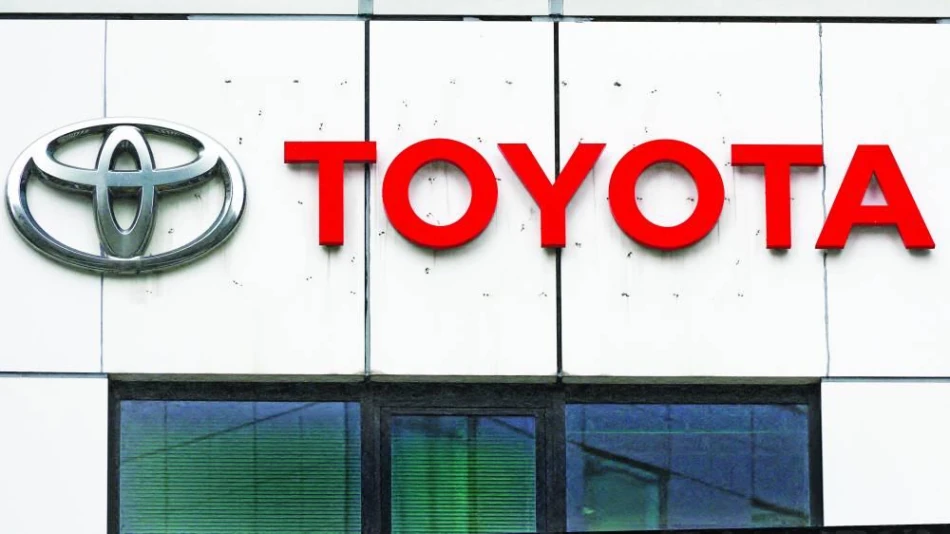
Toyota's Q2 2025 Earnings Surpass Expectations: A Remarkable Performance Boost
Toyota Defies Trade War Headwinds with Strong Q1 Performance Despite $3 Billion Tariff Hit
Toyota Motor delivered better-than-expected operating profits for the quarter ending June, demonstrating the Japanese automaker's resilience even as U.S. tariffs carved out a substantial 450 billion yen ($3 billion) chunk from its bottom line. The world's largest automaker by sales volume managed to exceed analyst forecasts on revenue while navigating one of the most challenging trade environments in decades.
Financial Performance Exceeds Market Expectations
Toyota reported revenues of 12.25 trillion yen for the first quarter, surpassing London Stock Exchange analysts' consensus forecast of 12.19 trillion yen. This revenue beat signals strong underlying demand for Toyota's vehicles across global markets, particularly impressive given the headwinds from escalating trade tensions between the U.S. and major trading partners.
However, the impact of protectionist policies became evident in the company's profit margins. Operating profit declined 11% year-over-year, with Toyota directly attributing 450 billion yen in losses to American tariffs. Net income took an even sharper hit, plummeting 37% to 841.3 billion yen.
Trade War Reality Bites Auto Industry
Toyota's tariff-related losses underscore how trade disputes have moved beyond political rhetoric to tangible corporate impact. The automotive sector, with its complex global supply chains and cross-border manufacturing footprint, has become particularly vulnerable to tariff escalations.
Unlike some competitors who have been more vocal about trade policy impacts, Toyota has historically maintained a measured approach to geopolitical challenges. The company's ability to still beat revenue expectations while absorbing such significant tariff costs demonstrates the strength of its operational efficiency and market positioning.
Cautious Outlook Reflects Uncertain Trade Environment
Looking ahead, Toyota revised its full-year operating income forecast downward by 600 billion yen to 3.2 trillion yen. This adjustment reflects management's pragmatic assessment of continued trade tensions and their potential to disrupt both supply chains and consumer demand patterns.
The downward revision also suggests Toyota expects tariff pressures to persist or potentially intensify throughout the fiscal year. For investors, this conservative guidance approach may actually provide more confidence than overly optimistic projections that risk disappointing markets later.
Strategic Implications for Global Automakers
Toyota's experience offers a preview of how major automakers must adapt to a more fragmented global trade environment. The company's diversified manufacturing base, with significant production capacity in both the U.S. and other key markets, provides some natural hedging against trade disruptions.
However, the 450 billion yen tariff impact demonstrates that even well-diversified manufacturers cannot fully insulate themselves from trade policy shifts. This reality is likely pushing Toyota and peers to accelerate localization strategies and reduce cross-border component flows where economically feasible.
For the broader automotive industry, Toyota's results suggest that companies with strong operational fundamentals can weather trade headwinds, but the era of seamless global supply chain optimization may be giving way to more regionalized, resilient manufacturing networks.
Most Viewed News

 Omar Rahman
Omar Rahman






